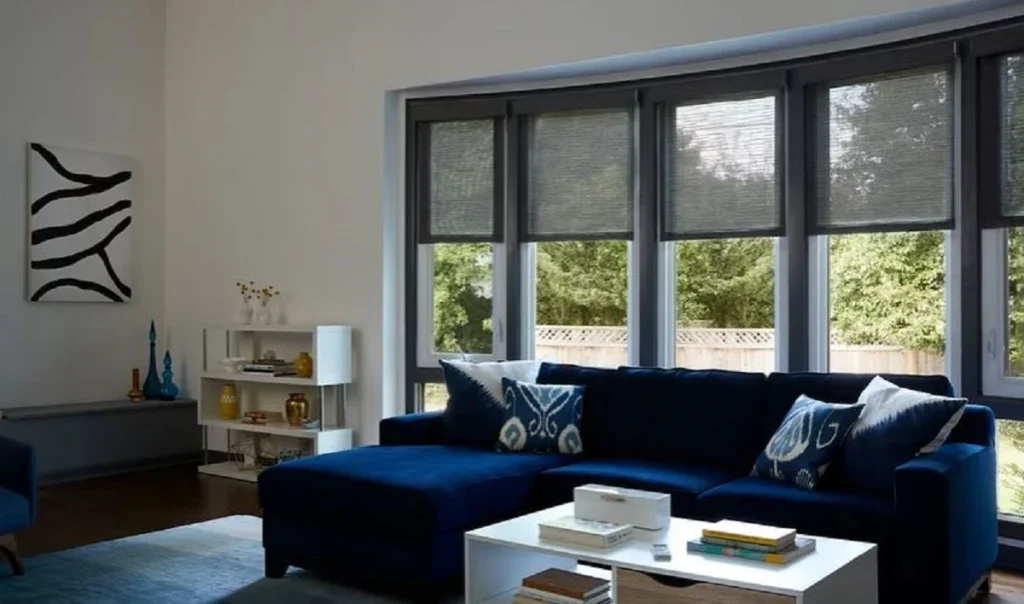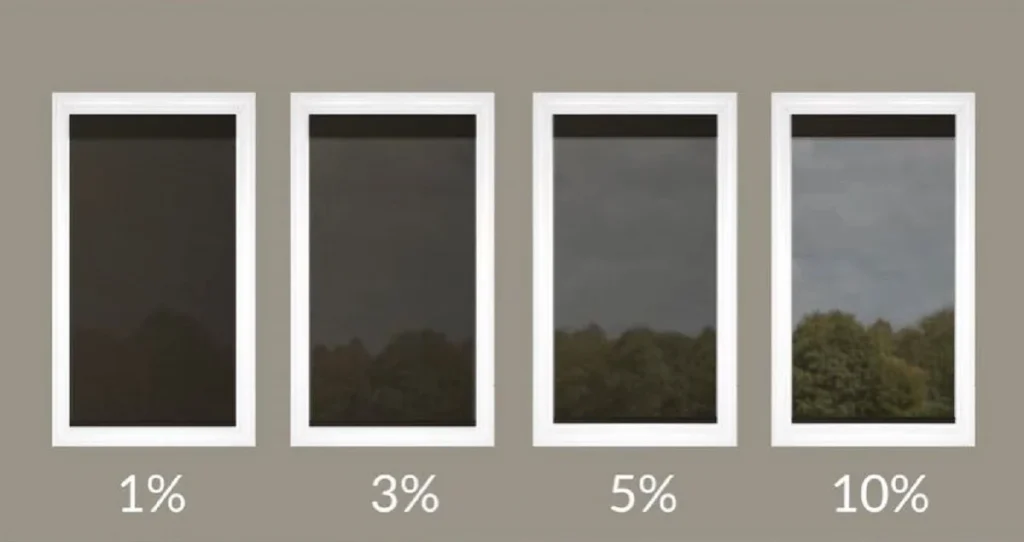Disclosure: As an Amazon Associate, I earn from qualifying purchases. Learn more
Last Updated on December 12, 2023 by Mark Jase
Solar shades are effective in blocking heat, making them an ideal choice for maintaining cooler indoor environments. These shades prevent heat from penetrating through windows by obstructing direct sunlight, thus contributing to a more comfortable indoor temperature.
Solar shades, also known as solar screens, serve a dual purpose. They not only reduce the heat buildup inside rooms but also significantly cut down on incoming UV rays. This dual functionality makes them a smart investment for both health and comfort.
By blocking UV rays, solar shades protect interior furnishings from fading and reduce the risk of skin damage from prolonged exposure to sunlight.
In addition to heat and UV ray reduction, solar shades are adept at minimizing glare, which is particularly beneficial in rooms with televisions or computer screens. This feature enhances visual comfort by reducing the strain on the eyes caused by excessive brightness.
While they are effective in blocking sunlight and its associated heat, solar shades are designed to retain visibility, allowing you to enjoy outdoor views without the harsh glare and heat of direct sunlight.
Solar shades, however, have their limitations. They are not designed to block rain or completely darken a room. Their primary function is to reduce heat and light, making them a practical choice for areas that receive a lot of sunlight.
Their design allows for a balance between light control, heat reduction, and maintaining a connection with the outside world.
Solar Shade Efficacy: Reality Check
The question of whether solar shades work is quite straightforward. Solar shades are designed specifically to reduce the amount of sunlight and heat entering a space. These shades are constructed using materials that reflect and absorb solar radiation, thereby limiting the heat that passes through windows.
Their effectiveness depends on various factors, including the quality of the material, the design, and the installation. Users of solar shades report a noticeable decrease in the temperature of their rooms, especially in areas exposed to direct sunlight.
Solar shades can significantly lower energy costs by reducing the need for air conditioning. They also help in protecting furniture and flooring from sun damage, extending their longevity.
Optimal Solar Shade Color for Heat Control
The color of a solar shade plays a crucial role in its effectiveness in blocking heat. Generally, darker shades are more efficient in absorbing solar energy, thereby preventing it from entering the room.
On the other hand, lighter shades are better at reflecting sunlight, which also helps keep the room cooler. The choice between light and dark shades often depends on the desired balance between heat control and visibility.
Darker shades provide better glare control and visibility, while lighter shades can brighten the room and maintain a cooler temperature. It’s also important to consider the aesthetic aspect and how the shade complements the interior design.
Therefore, selecting the right color for a solar shade involves considering both functional and design elements to achieve the best results in heat reduction and room ambiance.

Solar vs. Roller Shades: Understanding the Difference
Solar shades and roller shades, while similar in appearance, serve different purposes. The primary function of solar shades is to block out heat and harmful UV rays without obstructing the view outside.
They are made of a mesh-like material that allows visibility while filtering sunlight.
Roller shades are primarily designed for privacy and light control. They are often made of opaque or semi-opaque materials and can completely block the view outside.
In terms of heat control, solar shades are more effective due to their reflective and absorptive properties. Roller shades provide more options for design and privacy but may not be as efficient in blocking heat.
When choosing between the two, it’s essential to consider the primary need: whether it’s heat reduction and UV protection or privacy and light blocking.
Read More: Can You Heat a Pool With Solar Panels?
Balancing Light and View with Solar Shades
Solar shades are an excellent solution for those looking to block the sun’s heat while maintaining their outdoor view. Unlike traditional window coverings that block the view completely, solar shades are designed to filter sunlight and reduce glare without obstructing the outdoor scenery.
This feature is particularly beneficial for rooms with scenic views or where natural light is desired. The shades work by using a mesh fabric that allows light to penetrate while keeping out the harsh glare and heat of the sun. This results in a comfortable indoor environment with reduced heat and a preserved view.
Solar shades come in various opacities, allowing customization based on how much light control and visibility are needed.
They offer a perfect blend of functionality and aesthetic appeal, making them a popular choice in both residential and commercial settings.

How do Solar Shades Mitigate Heat Transfer?
Solar shades are engineered to mitigate heat transfer, making them an efficient tool for maintaining a comfortable indoor temperature. The key to their effectiveness lies in their material composition, which is typically a mesh fabric designed to block out a significant portion of UV rays.
By intercepting these rays, solar shades prevent the sun’s heat from penetrating through the windows, thereby reducing the indoor temperature. The principles of heat transfer are central to their function. Solar shades absorb and reflect solar energy, which minimizes the heat gain within a room.
Moreover, the positioning of the shades about the windows plays a significant role in their effectiveness. Properly installed solar shades can drastically improve a room’s temperature regulation, making them a practical addition to homes and offices in sunny areas.
The ability to control room temperature without compromising on natural light makes solar shades an innovative and energy-efficient window treatment solution.